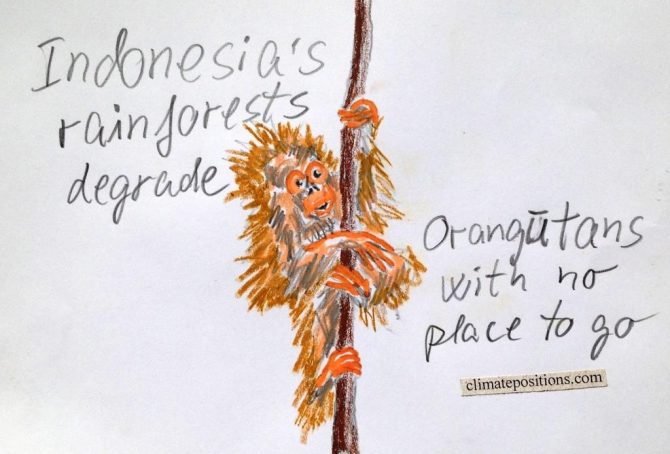Commission on Human Rights of the Philippines accuses Shell, BP, Chevron, BHP Billiton, Anglo American and 42 other carbon companies of breaching people’s fundamental rights to life, food, water, sanitation, adequate housing and self-determination
According to ‘The Guardian’ the Filipino government body ‘Commission on Human Rights of the Philippines‘ have given the world’s largest oil, coal, cement and mining companies 45 days to respond to a ‘legal complaint (pdf, 65 p)‘ that their greenhouse gas emissions have violated the human rights of millions of people living in the Philippines.
The UN Guiding Principles on Business and Human Rights explicitly call on companies to respect human rights, and there are three scenarios in which a company can be hold responsible for adverse impacts on human rights, quote: “(1) it may cause impacts through its own activities; (2) it may contribute to impacts through its own activities, either directly or through some outside entity (government, business, or other); and (3) it may be involved in impacts caused by an entity that is directly linked to its business operations, products, or services.”
Climate Debt: Finland ranks 13th among 148 countries
Finland’s current Climate Debt is $3,078 per capita and the ‘Ranking’ by January 2016 was 13th among 148 countries, compared to 10th ranked in 2010. The following examines the Finnish CO2 Emissions, Nuclear Power, Forest Cover, Environmental Performance and GDP(ppp-$), in comparison with the four largest trade partners Russia, Germany, Sweden and United Kingdom.
Climate Debt: Bahrain ranks 12th (immigrant workers reduce per capita CO2 Emissions)
Bahrain’s current Climate Debt, accumulated since 2000, is $3,352 per capita. The ‘Ranking’ by January 2016 was 12th among 148 countries. Although the total Bahraini CO2 Emissions from fossil fuels and cement production have increased about 100% since 1990, and 35% since 2006, the per capita emissions have declined from 27.2 tons in the 1990s to 17.9 tons in 2011 – how can that be?
The key explanation is simple: immigration of great numbers of (often) ‘Slavery-like workers‘, presumably with low individual emissions, has lowered the national average! Today around 55% of Bahrain’s population are immigrants from India, Bangladesh, Pakistan, the Philippines, Indonesia, Jordan, Syria, Yemen, Nepal, East Africa etc. If the immigrant-emissions hypothetically is set at 2 tons of CO2 per capita on average (which is more than their origin countries on average), then the 45% native Bahraini’s emitted 38 tons per capita in 2011, or eight times the world average. Nevertheless, the national ‘COP21 Submission 2015’ mentions no overall emission reduction target. Add to this the nasty facts that Bahrain’s fossil fuel production 2012 (Btu) was 44% above the 2000-level¹ and renewable electricity production (Btu) 2012 amounted only 0.003% of the total energy consumption (Btu). Bahrain is categorized as “authoritarian” and ranks 146 among 160 countries in the ‘Democracy Index 2015‘ … and no data is available on income distribution (inequality) – no surprise.
Indonesia’s Climate Debt, rainforests, waters and greenhouse gas emissions
Indonesia’s current Climate Debt, accumulated since 2000, is $123 per capita (‘ranks’ 67th among 148 countries, by January 2016). The total Climate Debt is $31 billion (‘ranks’ 25th). However, looking at the entire level of greenhouse gas emissions, Indonesia is estimated to be the world’s 3rd largest emitter¹, with the large majority of its emissions coming from rainforest and peatland degradation and loss. Today, around 5% of the global greenhouse gas emissions are coming from Indonesia, with its 3.7% share of the global population. The following examines the indicators of CO2 Emissions, Forest Cover, Primary Forests and GDP(ppp-$), and other warming-related topics such as forest fires, oil palms and ecosystems.



